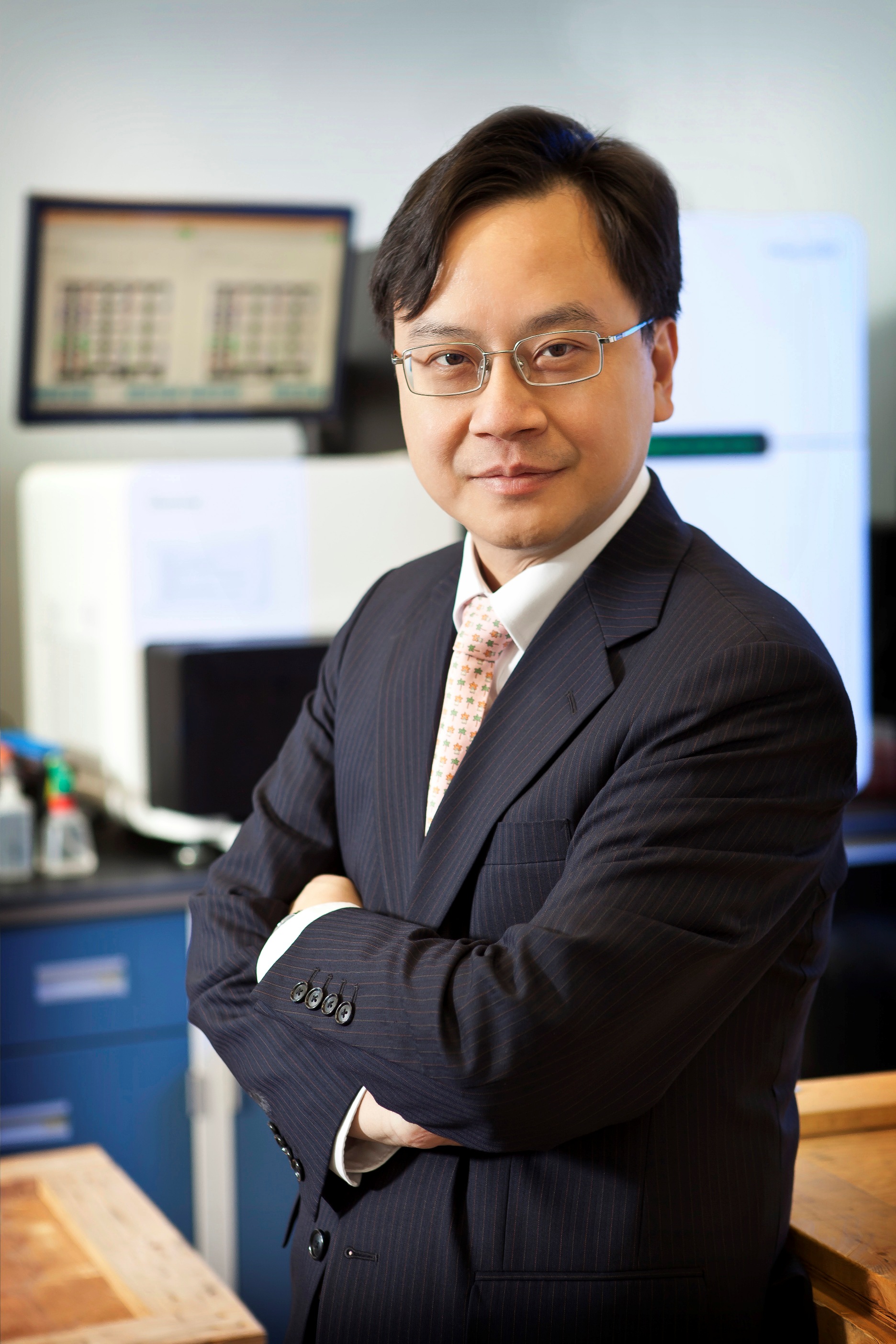CUHK
News Centre
CUHK Professor Dennis Lo Awarded by American Association for Clinical Chemistry for Non-invasive Prenatal Diagnosis ResearchThe First Ever Chinese to Receive the Honour
Prof. Dennis Lo Yuk-ming, Li Ka Shing Professor of Medicine and Chairman of the Department of Chemical Pathology at The Chinese University of Hong Kong (CUHK) has received the AACC-NACB Award for Outstanding Contributions to Clinical Chemistry in a Selected Area of Research from the American Association for Clinical Chemistry (AACC) and the National Academy of Clinical Biochemistry (NACB) for his ground-breaking work in non-invasive prenatal diagnosis. The award recognizes the pioneering efforts of experts at the forefront of their fields. Amongst previous award winners included two Nobel laureates. Professor Lo is the first ever Chinese to receive the honour.
Professor Lo’s award is another testimony to the University’s leading position in innovative research. Professor Lo said, ‘I am most honoured and delighted to receive this award from the American Association for Clinical Chemistry. Science is about team work. I would like to thank my research team for their efforts and perseverance over the years. I would also like to thank my wife for her encouragement and for accompanying me during my long journey of scientific research.’
In 1997, Professor Lo and his co-workers made the discovery that the DNA of the fetus can be found in the plasma of the pregnant mother, unveiling possibilities for non-invasive prenatal diagnosis. Over the past 15 years, Professor Lo has elucidated the fundamental biological characteristics of fetal DNA in the mother’s bloodstream and demonstrated that it can be used for the prenatal diagnosis of diseases and for blood group genotyping.
To develop a non-invasive test for Down syndrome, Professor Lo and his team recently launched ‘safeT21’ (a sensitive analysis of fetal DNA for T21 screening), an approach based on molecular counting and genetic sequencing for the detection of fetal chromosome abnormalities. A number of large-scale validation clinical studies performed by other groups around the world have confirmed the highly accurate diagnostic performance of the technology, which was introduced into clinical practice in Hong Kong and the US in late 2011.
Down syndrome is conventionally diagnosed by analysing genetic material obtained directly from the fetus through invasive procedures such as amniocentesis and chorionic villus sampling. There is, however, about a 0.5% to 1% chance of miscarriage associated with these invasive procedures. Hence, a non-invasive test based on analysing the baby’s DNA found in its mother’s blood would remove the invasive procedure-related risk. This non-invasive technology would make prenatal testing safer and less stressful for pregnant women and their families. It is envisioned that this technology will increasingly be used by centres around the world.
The AACC is a nonprofit professional association with a membership of almost 9,000 experts in the field of clinical chemistry from around the world. Through educational services and publications, AACC works to improve and advance clinical laboratory services to enhance public health and patient care. The NACB Award for Outstanding Contributions to Clinical Chemistry in a Selected Area of Research was established in 1973 and 42 professional scientists have received this award so far. The honour was presented to Professor Lo at the annual meeting of the AACC held earlier in Los Angeles.



